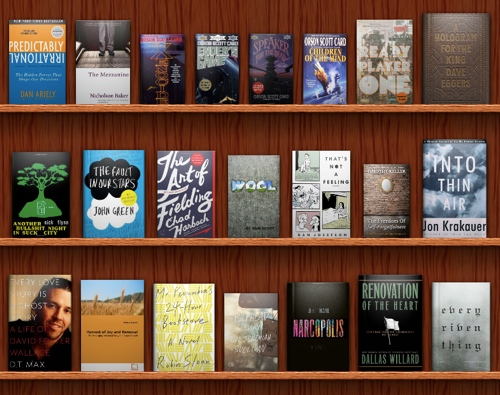
This thing gets more bananas every year, dont you agree? If you dont, just scroll down a ways. See? Ill let you get to all of the information below, but I do just want to quickly say that while I really enjoyed many of the books I read in 2012, the year of reading felt kind of weird on the whole. It might be because I was sick for a while or that I didnt finish a bunch of books, but for whatever reason when I look at the image at the top of this post it almost doesnt feel like it belongs on my blog. But anyway. Enough with the existentialism.
Presented below is a full list of the books I read in 2012, my “favorites” from several categories, a bunch of trivial statistics, and some other equally self-indulgent stuff. Enjoy. Oh, and feel free to leave a comment. Previously: 2011, 2010, 2009.
E-books notated with a bracketed superscript e, like so[e].
Disclaimer: All book links in this post are Amazon affiliate links.
Favorite Fiction Book
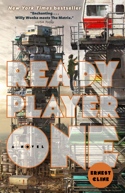
Ready Player One by Ernest Cline. Ready Player One is set in the year 2044 in a world thats pretty much crumbling to pieces, save for a massive virtual reality called OASIS. Within a few pages I was, like OASIS itself, totally jacked into this book; I was completely entertained by the unabashed escapism and nostalgia it provides. The narrative takes the reader on a massive treasure hunt and pits David versus Goliath in a sort of massive homage to 1980s culture. I breezed through this book in a matter of days — much faster than my average of 2+ weeks — and Libby read it immediately after me. She read it just as fast, and was equally captivated by it. Really, the book is just fun, and I recommend it to anyone with A) a fondness of 80s culture, B) a love of video games, C) escapist literature,1 or D) all of the above.
Favorite Non-Fiction Book
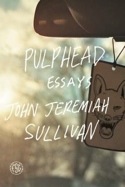
Pulphead: Essays[e]by John Jeremiah Sullivan. This collection of essays placed John Jeremiah Sullivan securely in the top five of my Favorite Contemporary Writers list,2 and certainly in the #1 position of my Favorite Contemporary Journalists list. Thats both good and bad news: The good news is, of course, that its always a pleasure to read good writing, while the bad news is that because Im now reading anything Sullivan publishes, I will have probably already read his entire next essay collection, so heres to hoping that his next book is something other than an essay collection. The books essays topics are all over the thematic map (a good thing, in this case); my favorite one was probably Michael, a piece about Michael Jackson that originally ran in GQ under the title Back In The Day. Pulphead was also, notably, the first e-book Ive ever read beginning-to-end, no doubt making last years Physical books read vs. e-books read pie chart the last of its kind.
Favorite Non-Fiction Book, Runner Up
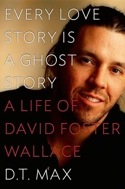
Every Love Story Is a Ghost Story: A Life of David Foster Wallace by D.T. Max. My wife and I had a book-themed wedding, and as part of the theme we both had several books from our favorite author placed on the table where we sat during our reception. She chose some Steinbeck books, while I went with some David Foster Wallace books. Which is really just a circumlocutory way of saying that Wallace is clearly #1 on my Favorite Writers of All Time list and so of course I would read his biography.3 I have to say that the book left me somehow feeling whole and incomplete simultaneously, like I both gained something and left something behind from having read it, if that makes any sense. Nevertheless, because of the subject matter alone I am pretty much obligated to be favorable toward this book. When it comes down to it, I agree with Matt Bucher, who says that Every Love Story Is a Ghost Story might inform your mental impression of [David Foster Wallace], but the authentic, more enduring part of him is still there in the stories he left behind.
Books I Feel the Weirdest About Having Read
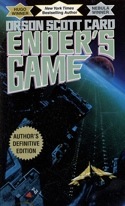
Enders Game, Speaker for the Dead, Xenocide, and Children of the Mind by Orson Scott Card. Im not really sure why I started reading these books (known collectively as the Ender quartet), though if I had to guess, Id say it was probably at the urging of someone on /r/books. The first book, Enders Game, is actually pretty good. Its in the same vein as books like The Hunger Games; while its set in the future and there are a lot of science-fictiony things about it, the plot itself is compelling enough that the science-fictiony stuff takes a back seat.4 The last three books, however, are pretty much just straight-up science fiction, and the fact is I just dont think Im a Science Fiction Guy. Im not really even sure why I kept reading, honestly. But I did, and now I feel kind of weird about it. Its probably similar to what someone whos had a few less-than-enjoyable karaoke experiences feels like after their friends peer-pressured them into singing Sweet Caroline (Oh come on, everyone knows that song! No one will even hear you!) on stage feels like after theyve finished. It wasnt awful, but Im pretty sure I wont do it again any time soon. On the bright side, I can now condescendingly say The book was way better when the Enders Game movie comes out.
The Complete List
- Predictably Irrational: The Hidden Forces That Shape Our Decisions by Dan Ariely
- The Mezzanine by Nicholson Baker
- Enders Game by Orson Scott Card
- Speaker for the Dead by Orson Scott Card
- Xenocide by Orson Scott Card
- Children of the Mind by Orson Scott Card
- Ready Player One: A Novel by Ernest Cline
- A Hologram for the King by Dave Eggers
- Another Bullshit Night in Suck City: A Memoir by Nick Flynn
- The Fault in Our Stars by John Green
- The Art of Fielding: A Novel by Chad Harbach
- Wool[e] by Hugh Howey
- Thats Not a Feeling by Dan Josefson
- The Freedom of Self Forgetfulness[e] by Timothy Keller
- Into Thin Air: A Personal Account of the Mount Everest Disaster by Jon Krakauer
- Every Love Story Is a Ghost Story: A Life of David Foster Wallace by D.T. Max
- Harvest of Joy and Renewal: The Emerging Missional Way in a Rural Church[e] by Melissa Rudolph
- Mr. Penumbras 24-Hour Bookstore: A Novel by Robin Sloan
- Pulphead: Essays[e] by John Jeremiah Sullivan
- Narcopolis: A Novel by Jeet Thayil
- Renovation of the Heart: Putting On the Character of Christ by Dallas Willard
- Every Riven Thing: Poems by Christian Wiman
Unfinished Books
This list is 350% longer than last years list, and while I feel like I should maybe be embarrassed and/or ashamed by that fact, I am becoming a subscriber to the You Cant Possibly Read It All, So Stop Trying school of thought. If a book doesnt hold my interest for some reason (and there are legitimate reasons other than the book not being quote-unquote good, including said book not jibing with my current fleeting interests) then I may as well move on to something that really straps me down.
Lars Rood makes a convincing point as well:
@jakebouma books arent made to be finished. You enter into a relationship and then end it when its right for you both
— Lars Rood (@LarsRood) December 28, 2012
Stopping points are notated parenthetically,5 and § denotes I.T.F.S.6
- The Most Human Human: What Talking with Computers Teaches Us About What It Means to Be Alive[e] by Brian Christian (p. 102)
- Lost at Sea: The Jon Ronson Mysteries by Jon Ronson§ (p. 168)
- Robopocalypse[e] by Daniel H. Wilson (p. 205)
- The Revolution Was Televised: The Cops, Crooks, Slingers and Slayers Who Changed TV Drama Forever[e] by Alan Sepinwall (188 pages)7
- Three Treatises by Martin Luther (145 pages)8
- Personae by Sergio de la Pava (p. 144)
- A Naked Singularity by Sergio de la Pava (p. 112)9
- This Is Where I Leave You by Jonathan Tropper (p. 64)
- Let the Great World Spin by Colum McCann (p. 118)
- Cowboys Full: The Story of Poker by James McManus (p. 61)
- Black Swan Green by David Mitchell§ (p. 47)
- Both Flesh and Not: Essays by David Foster Wallace§ (p. 175)
- Gravity Grace by Simone Weil (p. 90)
- The Predicament of Belief: Science, Philosophy, and Faith by Philip Clayton and Steven Knapp§ (p. 47)
Statistics
(N.B. Page count stats include unfinished books.)
Total pages read (compiled using the page count on Amazons product pages, even for e-books): 8459
Total pages read, adjusted for accuracy (i.e., subtracting 15% from the total page count to account for front and back matter that are included in the total page count, but arent actually read): 7190.2
Percent difference in total pages read (adjusted for accuracy) from 2011 to 2012: -0.99%
Average number of pages read per day: 19.7
Average number of days per completed book: 16.6
Average stopping point for an unfinished book (excluding the two books from which I intentionally read excerpts): Page 111
Fiction vs. non-fiction completed
Books read per year
My bold prediction: In 2013 I will equal, if not surpass, 2010s total of twenty-seven books completed.10
Physical books completed vs. e-books completed
As I mentioned above, 2012 was the tipping point for me with regards to e-books, and it seems Im not alone. According to Pew Internet, In the past year, the number of those who read e-books increased from 16% of all Americans ages 16 and older to 23%. Before 2012, we didnt own any devices that really made e-reading enjoyable,11 but that changed in March when we purchased a third generation iPad. I like-but-dont-love the experience of reading an e-book, but my not-quite-love for it may be due to the fact that all of my e-reading has been done exclusively on our iPad. Meaning, maybe the experience is best on a Kindle or Nook? Who knows. I have a suspicion that I would really love reading e-books on an iPad Mini, but Ill wait until the retina version appears in due time.
One of the things that I really love about e-reading is the ability to download samples of books. I love the freedom of being able to browse an entire bookstore (bigger than a bookstore, really) while Im laying in bed at 10:00pm, find something that piques my interest, download a sample, and read a decent-sized chunk (around 20-30 pages, in my experience). In fact, thats how I got into several physical books, including The Art of Fielding — I read the digital sample, and then eventually picked up the physical copy.
Physical pages read vs. e-pages read (includes unfinished books)
The implication of the above chart of course being that lets not get ahead of ourselves with considering the significance and varied implications of the chart above the above chart, okay?
(And Finally) Most Anticipated Book of 2013
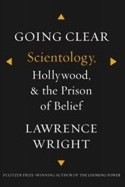
Going Clear: Scientology, Hollywood, and the Prison of Belief by Lawrence Wright. When I started writing this post, I had Present Shock: When Everything Happens Now by Douglas Rushkoff in this slot,12 but then I came across Going Clear. You may recall that another Scientology exposé, Inside Scientology: The Story of America’s Most Secretive Religion by Janet Reitman was my 2011 Scariest Book — before that book, I had at best a vague understanding of what Scientology is and reading through it left me nothing but terrified. Terrified, but still and nevertheless totally intrigued.
From The Millions always excellent annual book preview:
[Going Clear is] shaping up to be as controversial as anything that crosses Scientology’s path: Wright has been receiving numerous legal missives from the church itself and the celebrities he scrutinizes, and his British publisher has just backed out—though they claim they haven’t been directly threatened by anyone.
This book expands on Wrights (excellent) article from 2011 in the New Yorker, Paul Haggis vs. the Church of Scientology.
- Although: Arguably, the vast bulk of popular reading is escapist in nature. []
- I.e., Ill read anything these writers put out, regardless of subject matter, length, etc. []
- To further drive home the point that DFW is indeed #1 on my Favorite Writers of All Time list, a true story: For the first seventeen months of our marriage, we had a David Foster Wallace portrait prominently featured in our apartments modestly-decorated living room(!). It has since — much to my chagrin — found its way elsewhere, having been replaced by (wait for it) photos of the two of us reading books. []
- To be fair, the last three books do have plots, but they pale in comparison (the plots do) to Enders Game, in my opinion. []
- In the case of the one Kindle e-book, I arbitrarily decided to convert the percent read to a physical page number, which page number was taken from the products Amazon page. So, e.g., my Kindle app says I stopped at 32% of The Most Human Human, and 32% of the print versions stated 320 pages is 102.4 — which is pretty darn close to accurate. Meaning if you Look Inside the book on Amazon, the actual page I stopped on was 99. But for the sake of consistency (and, frankly, ease of investigation), Im (again, arbitrarily) going with the Percent-Converted-To-Physical-Page calculation over attempting to ascertain actual page numbers. This is more for future years Books I Read posts, really, in case I end up devouring, like, fifteen Kindle books in 2013. Then Ive already set the precedent and Im not stuck in some sort of nauseating page-counting dilemma (at this point, only some Kindle e-books have actual page numbers). Apples iBooks has actual page numbers, natch. []
- Intent To Finish Someday. []
- While technically unfinished, I purchased this book with the sole intention of only reading three chapters — the ones on LOST (ch. 6), Mad Men (ch. 11), and Breaking Bad (ch. 12) — after having read this excerpt from ch. 6 on Grantland. []
- I was only required to read the second of the three treatises (The Babylonian Captivity of the Church) for a seminary course. []
- This book was last years Most Anticipated Book of 2012. []
- Unless I get cancer again, in which case, goddamnit. []
- Pre-iPad, I tried reading a bit on the Kindle app for my iPhone, but ew. []
- Rushkoff was the writer of and correspondent for one of my favorite Frontline episodes of all-time, The Persuaders. And his short little book Program or Be Programmed: Ten Commands for a Digital Age should be required reading for ninth grade students. []







Pingback: Books I read in 2012 | ChristianBookBarn.com
Pingback: Being Flynn |